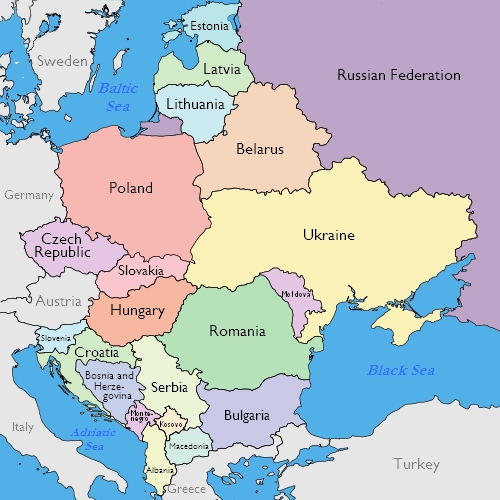Nuclear Reactors 278 - Eastern European Countries Seek Funding For Nuclear Projects
Western Europe is having a lot of problems with nuclear power. Germany is working out how to shut down all of their nuclear power plants. Austria is suing other European Union nations over nuclear issues. The Brexit threw shockwaves into the European nuclear industry. France’s nuclear reactor manufacturer Areva is in serious financial difficulty. There are voices in the E.U. calling for a nuclear policy for all of Europe to help deal with difficult issues. While Western Europe is grappling with the question of whether or not nuclear energy should be part of the future energy mix, Eastern Europe, which inherited nuclear reactors from the Soviet Union, is enthusiastic about the future of nuclear power.
While public opinion is trending against nuclear power in Western Europe, the public is fine with nuclear power in Eastern Europe. However, Eastern European countries are having a difficult problem coming up with the necessary funding for the expansion of nuclear power.
Adding to their nuclear fleet has been a long-term goal of the Czech government. The Czech people do not seem to be worried about safety concerns. But the question of who will provide the twelve billion dollar investment needed to carry out current plans has not been answered. They have been having trouble selling nuclear projects to domestic investors. Even a state-owned energy group called CEZ is facing resistance from private shareholders. CEZ pulled out of an eight billion dollar tender because the Czech government would not offer power price guarantees.
Russia and China are both eager to expand their export businesses in nuclear power reactors in Eastern Europe. Russia has sent signals to the Czech government that they would like to find a mutually satisfactory way to help fund new nuclear projects in the Czech Republic.
In Poland, a recent poll found that sixty-one percent of the Polish public supports nuclear power as a solution to Poland’s energy needs. As with the Czech public, the Polish citizens do not seem to be worried about safety. The Polish people have a high regard for scientists and other experts. There is also a long-standing vision of nuclear power as a symbol of national achievement.
Russia and China have expressed interest in Polish nuclear projects but Poland is concerned about foreign capital interfering with Polish interests and is seeking other ways of raising the capital. However, no alternatives to foreign assistance have been found so far.
Hungary has been working for some time on getting E.U. permission to contract Rosatom, the Russian government-owned company, to expand the Hungarian Paks power plant. The E.U. permission finally came through this last February. Rosatom promised Hungary about ten million dollars to get around an EU requirement that member countries had to seek tenders for major infrastructure projects.
Slovakia is involved in a project to expand the Mochovce plant but it is way over budget and way behind schedule. Slovakia had been working with an Italian utility company named Enel but the problems with the project have resulted in Enel making plans to leave Slovakia. This will raise the problem of financing the completion of the project.
Eastern European countries are dedicated to nuclear power but nuclear projects are expensive and difficult to launch and complete. Time will tell whether Eastern European countries can fulfill their nuclear dreams.
